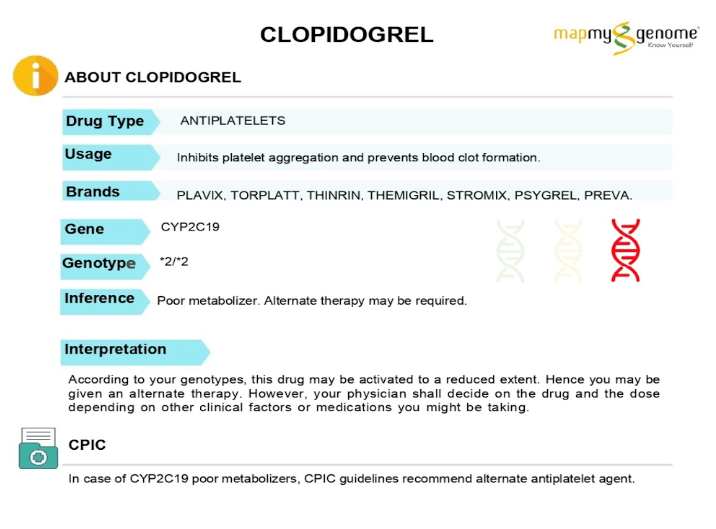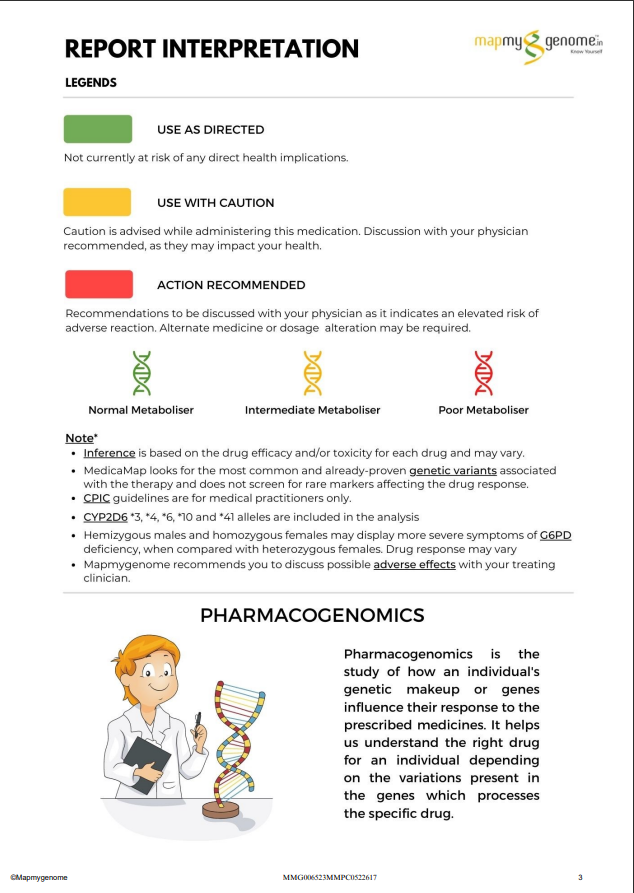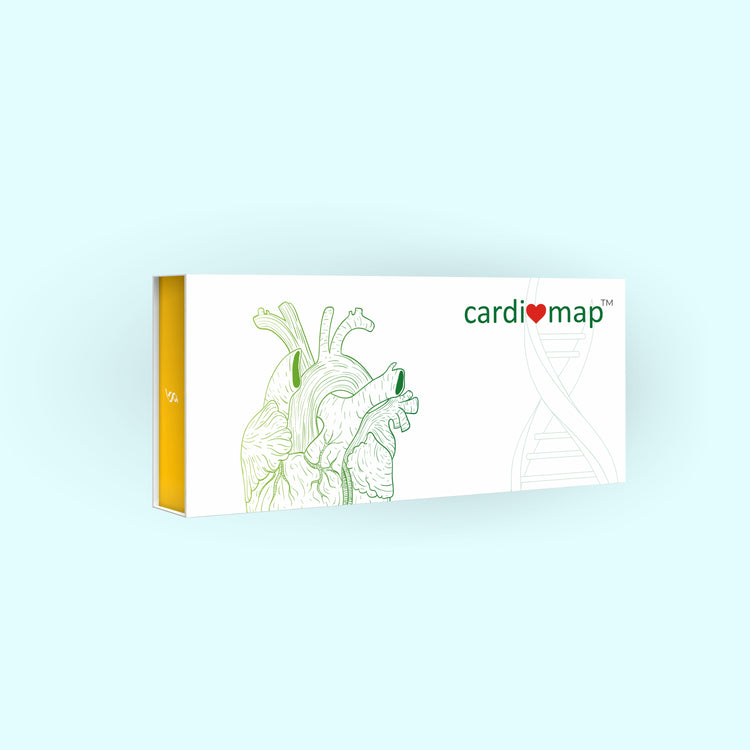When a Pharmacogeneticist Becomes a Poor Responder
Jun 06, 2022
1708 Views
Dr. Satyavardhan Rao is a clinical pharmacogeneticist who actively promotes the importance of precision medicine in the healthcare system. So when Satya decided to take Medicamap (Pharmacogenomics testing), he wasn‘t surprised to see his report indicating he would be a poor responder to clopidogrel, one of the common medicines used in India.

"I now know how my body reacts to some commonly prescribed medications.” Many people who take multiple medications have little understanding of their medicine’s response, which may result in ineffectiveness or toxicity. “Through my example, I hope to raise awareness about preemptive pharmacogenomic testing to improve medication efficacy, reduce toxicity, lower medical costs, and save lives," says Dr.Satyavardhan.
Clinicians often prescribe clopidogrel as a blood thinner. Routinely used alongside aspirin to treat acute coronary syndrome and ischemic stroke, clopidogrel relies on the patient’s CYP2C19 liver enzyme for activation before exhibiting its intended effect.
“Surprisingly, people often show poor responses to clopidogrel, rendering it entirely useless. Genetic differences can affect how a person responds to medicines. Many common medicines used in Indian households can be ineffective because of the individual’s genetic variation,” Satya says.
Consider this scenario:
- Indians have a higher risk for medicine-induced cardiovascular events compared with the west.
- Almost every acute coronary syndrome(ACS) patient will be on Clopidogrel.
- Response to medicines varies within Indian subpopulations.
- Indians carrying a common genetic variant are prone to medicine-induced bleeding with blood thinner administration.
- A third of the Indian population has a genetic variant that reduces the effect of an antiplatelet drug.
- In India, the population shows variations of the marker connected with warfarin(blood thinner) metabolism.
- Most of the information, particularly about the dosage of medicines in the market, is based on information derived from clinical trials carried out in other countries.
Imagine the significant impact of replacing an ineffective medication with a better-suited one in treating those resistant to the intended effects? Or, more poignantly, knowing if a person will suffer a severe drug reaction and avoiding it altogether. Here Pharmacogenomics can be the catalyst in delivering a modern personalized health care system in India.
The varied response to medicines in the Indian population highlights the significance of creating India-specific comprehensive pharmacogenetic data.
Knowing the efficacy and toxicity of different medicines benefit clinicians in creating personalized treatment plans, ultimately giving patients the best possible chances for a positive outcome.
Pharmacogenomics is now widely used in major specialties like cancer, psychiatry, and cardiovascular treatments.

Take a big step on personalized medicine with Medicamap
Medicamap is MapmyGenome’s DNA-based pharmacogenomics solution that analyses an individual’s response to medicines. This genomic solution provides an individual’s body’s toxicity and efficacy for 100+ medicines across 12 different specialties. Medicamap helps doctors/physicians identify the drug that will have maximum efficacy and minimal side effects.
Advantages of Medicamap
- Once in a lifetime. Non-invasive. No pain. No needles
- Cover 100+ medicines
- Uses MapmyGenome’s patented Algorithm called SNaPpy
- A gold standard dataset for analysis
- Easy to understand report
- Genetic Counseling support with actionable information
Clinical Benefits of Medicamap
- Personalized insights - Comprehensive prescription review analyses of medicines to improve rational decision-making.
- Provides information about DNA variations associated with medicine’s metabolism, tolerance, adverse reactions, and contraindications based on internal factors such as enzyme activity.
- Minimize risk of drug-induced adverse reactions
- Reduce trial-and-error cycles by choosing the drug most likely to elicit a positive clinical response
- Optimize dosage- for eg, reduce the dose for poor metabolizers, and increase the dose for ultra-rapid metabolizers.
- Help comply with black-box warnings such as those from the FDA.
For more details: Click on Medicamap or Call Us at 1800-102-4595 or WhatsApp at 86883 10052.


